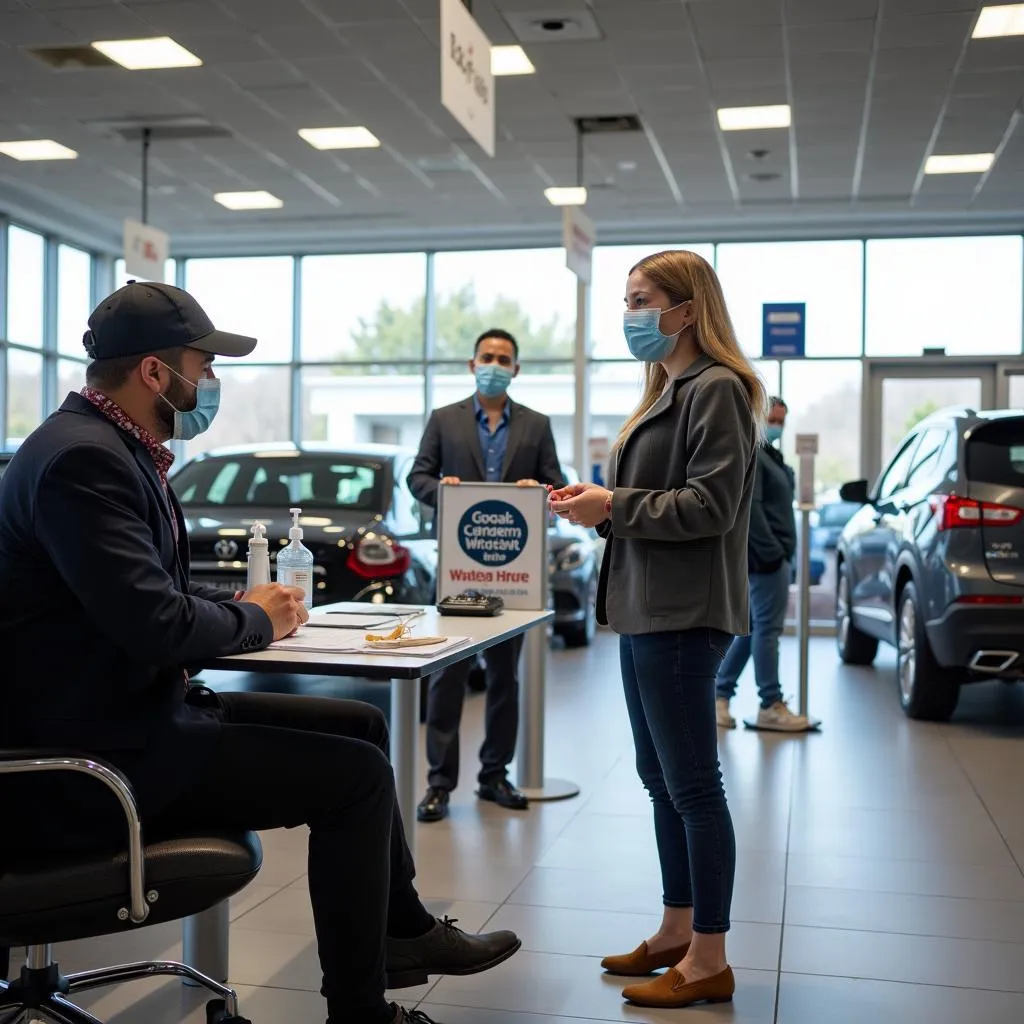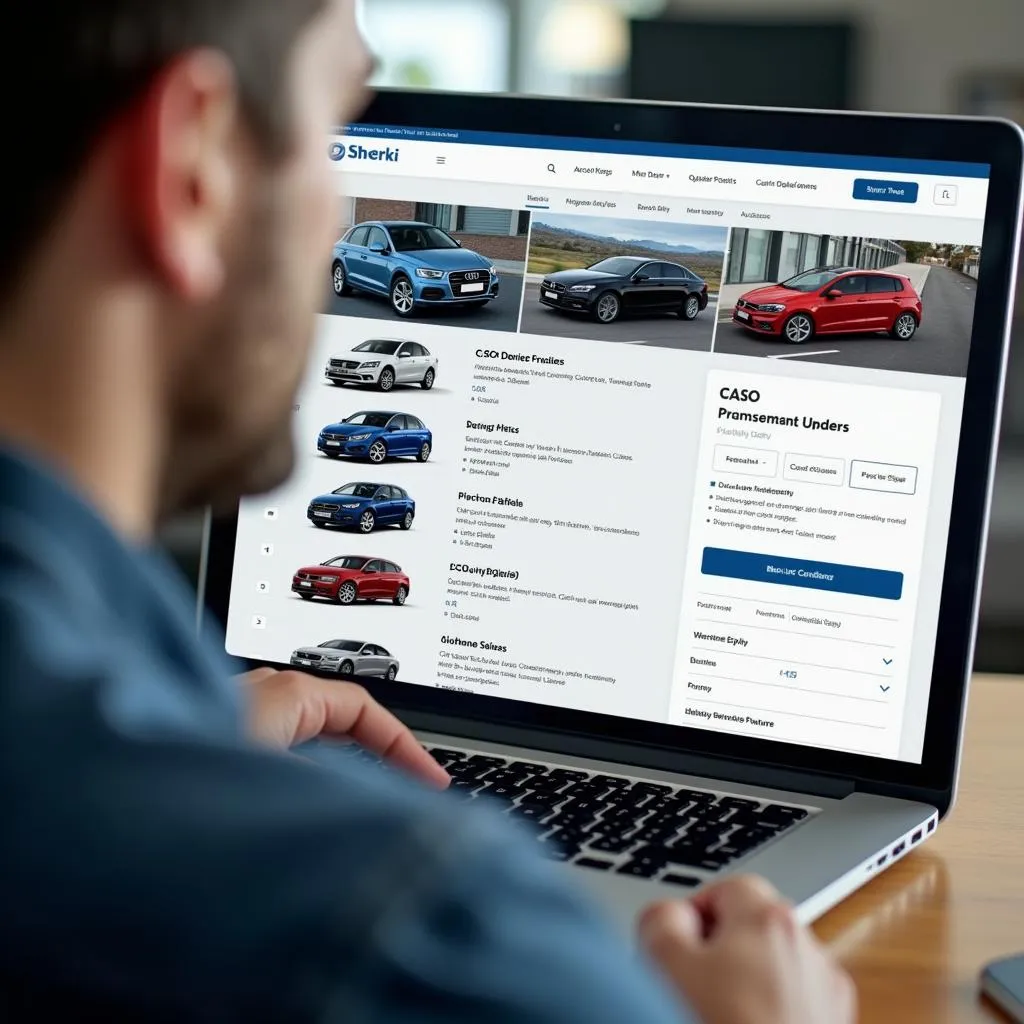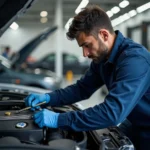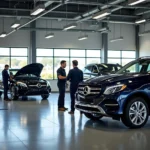The question of whether “auto sales” are truly “essential” is complex and hinges largely on context. While many might argue that personal vehicles are a necessity in our modern world, the act of buying or selling one doesn’t always fall under the umbrella of “essential services,” especially when compared to healthcare or critical infrastructure.
However, the COVID-19 pandemic forced a reevaluation of what constitutes an essential service. Lockdowns and restrictions made accessing necessities challenging, and personal vehicles often filled the gap. Public transportation, while essential, posed health risks, making car ownership a safer alternative for many. This led to several governments classifying auto repair and maintenance as “essential,” acknowledging their role in keeping people mobile for work, healthcare, and essential errands.
 Car dealerships adapting to pandemic restrictions
Car dealerships adapting to pandemic restrictions
The Shifting Landscape of Auto Sales
The pandemic accelerated trends already shaping the automotive industry. Online car sales and contactless delivery saw significant growth as consumers sought safer alternatives to traditional showrooms. This shift continues to influence consumer behavior, pushing the industry to adapt. Today, dealerships recognize the need for both physical and digital spaces, offering virtual tours, online financing options, and home delivery to cater to evolving customer preferences.
 Customer browsing car inventory on a laptop
Customer browsing car inventory on a laptop
Furthermore, the rise of ride-sharing services and the growing interest in autonomous vehicles add complexity to the “essential service” debate. While not directly replacing personal vehicles for all demographics or situations, these alternatives offer potential solutions for transportation needs, particularly in urban environments. As these technologies evolve and become more accessible, their impact on car ownership and the role of auto sales will become clearer.
The Enduring Importance of Mobility
Regardless of how the automotive landscape evolves, the need for reliable transportation remains constant. Whether it’s for commuting to work, accessing healthcare, or connecting with loved ones, personal mobility is deeply intertwined with our daily lives and overall well-being. This underlying need is what fuels the auto sales industry and positions it as a crucial element within the broader ecosystem of mobility solutions.
 Family enjoying a road trip in their new car
Family enjoying a road trip in their new car
While the pandemic may have highlighted the essential nature of personal vehicles in certain circumstances, their continued relevance hinges on the industry’s ability to adapt and innovate. Meeting the evolving needs and expectations of consumers, embracing sustainable practices, and navigating the technological advancements on the horizon will be key to ensuring the automotive industry thrives in the years to come.
FAQ
1. Did the pandemic permanently change the way we buy cars?
The pandemic significantly accelerated the shift towards online car buying, and while physical dealerships remain important, the digital experience is now a crucial aspect of the process.
2. Are online car sales platforms reliable?
Reputable online car sales platforms offer a safe and convenient way to buy a car. It’s essential to research the platform and choose a trusted provider with transparent policies.
3. Will ride-sharing and autonomous vehicles replace personal car ownership?
While these technologies offer viable alternatives, particularly in dense urban environments, it’s unlikely they will entirely replace personal car ownership in the foreseeable future. Factors like cost, accessibility, and personal preference continue to influence car buying decisions.
4. How is the automotive industry addressing sustainability?
The industry is investing heavily in electric vehicles (EVs), fuel-efficient technologies, and sustainable manufacturing processes to minimize its environmental impact.
5. What is the future of the auto sales industry?
The future of auto sales lies in embracing digital transformation, prioritizing customer experience, and adapting to evolving mobility trends like electric and autonomous vehicles.


